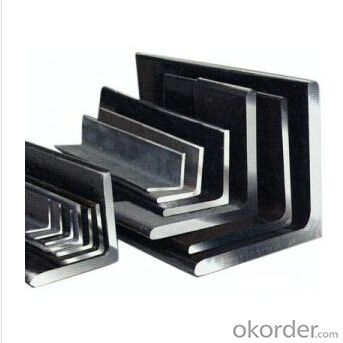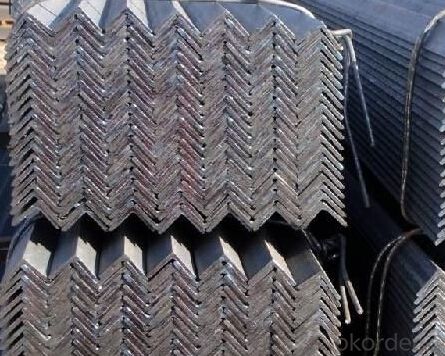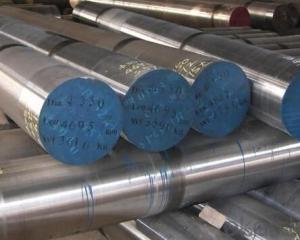High Quality Stainless Alloy Bearing Steel
- Loading Port:
- China Main Port
- Payment Terms:
- TT or LC
- Min Order Qty:
- -
- Supply Capability:
- -
OKorder Service Pledge
OKorder Financial Service
You Might Also Like
Product Description:
OKorder is offering High Quality Stainless Alloy Bearing Steel at great prices with worldwide shipping. Our supplier is a world-class manufacturer of steel, with our products utilized the world over. OKorder annually supplies products to European, North American and Asian markets. We provide quotations within 24 hours of receiving an inquiry and guarantee competitive prices.
Product Applications:
High Quality Stainless Alloy Bearing Steel are ideal for structural applications and are widely used in the construction of buildings and bridges, and the manufacturing, petrochemical, and transportation industries.
Product Advantages:
OKorder's High Quality Stainless Alloy Bearing Steel are durable, strong, and resist corrosion.
Main Product Features:
· Premium quality
· Prompt delivery & seaworthy packing (30 days after receiving deposit)
· Corrosion resistance
· Can be recycled and reused
· Mill test certification
· Professional Service
· Competitive pricing
Specifications of High Quality Stainless Alloy Bearing Steel
1. Grade: AISI 52100, ASTM E52100, DIN 1.3505,JIS SUJ2, GCr15
100Cr6 | 52100 | SUJ2 | GCr15 |
100CrMo7 | 100CrMo7 | SUJ5 | GCr18Mo |
20CrMo4 | 4118H | SCM418 | G20CrMo |
20NICrMo2 | 8520H | SNCM220 | G20CrNiMo |
- | - | 440C | 9Cr18 |
X108CrMo17 | S44004 | 440C | 9Cr18Mo |
2. Specification: Diameter: 5.5~350mm Length: 2000-6000mm or as required
3. Steel Grade: Bearing Steel
4. Certification: ISO9001-2000; CE, UL
5. Inspection: 100% Ultrasonic according to the test standards: SEP1921-84, GR.3 CLASS C/C
6. Packing situation: standard seaworthy packing or as customer required
7. Heat treatment:
Soft annealing: heat to 680-720°C, cool slowly.
Hardness after annealing: Max. 241 HB
Hardening: 820 - 850 °C
Normalizing temperature: 840-880°C
Tempering: 540-680°
Usage and Applications of Alloy Steel For Bearing
Alloy steel is used in making all kinds of bearing ring and rolling elements, like combustion engine, machine tool, and bearings for melting machine; also used for making tools and measuring tools.
Bearing steels are used for ball and roller bearing applications and are comprised of low carbon steels and high carbon through harden able steel.
Alloy Steel can be used in machine parts and engineering components.
Applications range: Chemical fertilizer pipe, building, machinery, textile industry, etc
Packaging & Delivery of Alloy Steel For Bearing
Packaging Detail: Standard seaworthy packing or as customer required; Packed in bundles with standard export sea-worthy package or as customer require
Delivery Detail: 45 days after order confirmed
Delivery condition: Black, peeled, machined
Trade terms: FOB, CFR, CIF
MOQ: 25 tons or at customer's demands
Production Flow of Alloy Steel For Bearing
Process: EAF+LF+VD+ Hot Rolled(Forged)+ Heat Treatment (Annealed, A Normalized, Q+T)
The processing is hot rolled (strictly control sulphur, phosphorus and non-metallic inclusions content and distribution).
FAQ:
Q1: Why buy Materials & Equipment from OKorder.com?
A1: All products offered byOKorder.com are carefully selected from China's most reliable manufacturing enterprises. Through its ISO certifications, OKorder.com adheres to the highest standards and a commitment to supply chain safety and customer satisfaction.
Q2: How do we guarantee the quality of our products?
A2: We have established an advanced quality management system which conducts strict quality tests at every step, from raw materials to the final product. At the same time, we provide extensive follow-up service assurances as required.
Q3: How soon can we receive the product after purchase?
A3: Within three days of placing an order, we will begin production. The specific shipping date is dependent upon international and government factors, but is typically 7 to 10 workdays.


- Q:How does quenching and tempering affect the hardness of special steel?
- Special steel can have its hardness and mechanical properties improved through the use of heat treatment processes known as quenching and tempering. During quenching, the steel undergoes rapid cooling from a high temperature to either room temperature or below. This is typically achieved by immersing the steel in a quenching medium like oil or water. The quick cooling results in the formation of a martensitic structure, which is characterized by high hardness and brittleness. Quenching significantly enhances the hardness of the steel. However, the brittleness of the martensitic structure limits its usability in many applications. To address this issue, the steel then undergoes tempering. Tempering entails reheating the quenched steel to a temperature below the lower critical temperature, usually ranging from 200 to 600 degrees Celsius. The steel is held at this temperature for a specific period of time. This process facilitates the transformation of the brittle martensite into a more ductile structure known as tempered martensite. Tempering reduces the hardness of the steel but imparts improved toughness and ductility. The actual hardness achieved after tempering depends on the tempering temperature and time. Higher temperatures and longer times result in a greater reduction in hardness. By carefully adjusting the tempering parameters, a balance between hardness and toughness suitable for the intended application can be achieved. To summarize, quenching and tempering have a significant impact on the hardness of special steel. Quenching increases hardness by creating a martensitic structure, while tempering reduces hardness but enhances toughness and ductility. The specific hardness achieved through these processes can be controlled by adjusting the quenching and tempering parameters to meet the desired mechanical properties for the specific application.
- Q:What are the future prospects for the special steel industry?
- The future prospects for the special steel industry are promising. With increasing demand for high-quality steel in sectors such as automotive, aerospace, and construction, the industry is expected to witness steady growth. Additionally, advancements in technology, such as additive manufacturing and new alloys, are likely to create new opportunities. However, challenges like fluctuating raw material prices and environmental concerns need to be addressed to ensure sustainable growth in the long term. Overall, the special steel industry is poised for a positive outlook, driven by evolving customer demands and innovation.
- Q:Can special steel be recycled?
- Yes, special steel can be recycled.
- Q:How is special steel used in the marine industry?
- Special steel is used in the marine industry for various applications due to its exceptional strength, corrosion resistance, and durability. It is commonly used for constructing ship hulls, propeller shafts, and other structural components that require high strength and resistance to harsh marine environments. Additionally, special steel is utilized in manufacturing marine equipment like anchors, chains, and offshore structures, ensuring their reliability and longevity.
- Q:How is duplex stainless steel used in the oil and gas industry?
- Duplex stainless steel is extensively used in the oil and gas industry due to its exceptional properties. It is commonly employed in the construction of pipelines, offshore platforms, and various equipment. Its high corrosion resistance allows for reliable performance in aggressive environments, such as offshore drilling rigs and subsea equipment. Additionally, its high strength and toughness make it suitable for handling high-pressure and high-temperature conditions. Overall, duplex stainless steel plays a crucial role in ensuring the safety, efficiency, and longevity of oil and gas operations.
- Q:Can special steel be used in the production of springs for automotive suspension?
- Yes, special steel can be used in the production of springs for automotive suspension. Special steel, such as high-strength or alloy steel, is often preferred for its improved durability, strength, and resistance to fatigue. These properties are critical for springs in automotive suspension systems, as they need to withstand the constant stress and load of the vehicle's weight and provide a smooth ride.
- Q:What are the different forging techniques used for special steel?
- There are several forging techniques used for special steel, including open die forging, closed die forging, and ring rolling. Open die forging involves shaping the steel between flat dies, allowing for flexibility in the size and shape of the final product. Closed die forging, on the other hand, uses shaped dies to shape the steel into a specific form. Ring rolling is a technique used to produce seamless rings by rolling a heated steel billet between two rotating rolls to achieve the desired shape. These techniques ensure the production of high-quality, customized special steel products for various applications.
- Q:How does special steel perform in terms of creep resistance?
- Special steel performs exceptionally well in terms of creep resistance. It is specifically designed to withstand high temperatures and long-term exposure to stress, making it highly resistant to deformation or failure under such conditions. Its unique composition and heat treatment processes enhance its ability to maintain structural integrity, making it a preferred choice for applications where creep resistance is crucial, such as in power plants, aerospace components, and high-temperature industrial environments.
- Q:Can special steel be used in the food packaging industry?
- Yes, special steel can be used in the food packaging industry. Special steel alloys, such as stainless steel, are commonly used in food packaging due to their corrosion resistance, durability, and ability to maintain product integrity. These properties make special steel suitable for applications where hygiene, safety, and longevity are essential, making it an ideal choice for various food packaging materials and equipment.
- Q:What are the properties of case-hardening steel?
- Case-hardening steel typically has a low carbon content, making it relatively soft and ductile. However, when subjected to a specialized heat treatment process, such as carburizing or nitriding, the surface of the steel becomes hardened while the core remains relatively tough. This allows case-hardening steel to possess excellent wear resistance and high surface hardness, making it ideal for applications that require both strength and durability, such as gears, shafts, and other mechanical components.
1. Manufacturer Overview |
|
|---|---|
| Location | |
| Year Established | |
| Annual Output Value | |
| Main Markets | |
| Company Certifications | |
2. Manufacturer Certificates |
|
|---|---|
| a) Certification Name | |
| Range | |
| Reference | |
| Validity Period | |
3. Manufacturer Capability |
|
|---|---|
| a)Trade Capacity | |
| Nearest Port | |
| Export Percentage | |
| No.of Employees in Trade Department | |
| Language Spoken: | |
| b)Factory Information | |
| Factory Size: | |
| No. of Production Lines | |
| Contract Manufacturing | |
| Product Price Range | |
Send your message to us
High Quality Stainless Alloy Bearing Steel
- Loading Port:
- China Main Port
- Payment Terms:
- TT or LC
- Min Order Qty:
- -
- Supply Capability:
- -
OKorder Service Pledge
OKorder Financial Service
Similar products
New products
Hot products
Related keywords
































